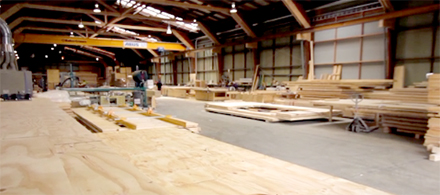New Zealand’s Forest Owners Association (FOA) says the Ministry of Business, Innovation & Employment’s (MBIE) announcement of ‘Building for Climate Change’ will mean more timber is used in New Zealand construction. FOA President Phil Taylor says he’s been waiting three years for the government to announce a wood preference, or wood first policy, for new government buildings, since it was part of the 2017 Labour Party Manifesto. Source: Timberbiz
“Even though the MBIE announcement, just out, doesn’t mention wood at all, the inevitable result of a government attempt to drive down the use of carbon emitting building materials, will mean more wood is used in construction overall,” Mr Taylor said.
“So, it’s potentially better than having ‘wood first’ which would have been restricted to just the government sector.”
The MBIE announcement identifies a change in construction materials as one way to reduce the carbon footprint of New Zealand buildings to combat climate change.
“Iron and concrete are carbon emitters – wood on the other hand locks up carbon for the life of the building,” Mr Taylor said.
“We don’t imagine for a moment that every construction in every town and every city will be all wood, but we do expect the ratio of wood use to markedly increase as this policy works through into building codes.”
He says the biggest impact could be in mid and high-rise construction, so that builders of commercial facilities will use more wood. Technical advances, such as Laminated Veneer Lumber and Cross Laminated Timber, allow taller wooden buildings to be made.
Forest owners have contributed recently to the development of timber design guides for architects and specifiers of larger scale construction.
“It’s also a timely announcement for the government to make. We’ve spent the past few weeks trying to get the government to listen to us that before more wood processing can occur in New Zealand; the market needs to expand,” Mr Taylor said.
“The solution is not the Log Bill, which is currently before parliament, and which NZIER has called a policy ‘throwback to another time’ with an attempt to force more logs into local mills instead of exports.
“The solution is in growing the timber market though specifying buildings which are more climate friendly.”






